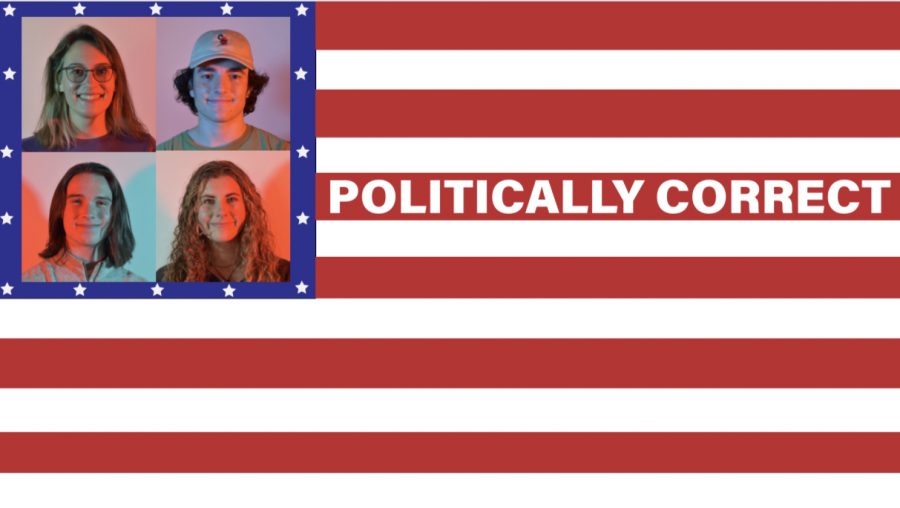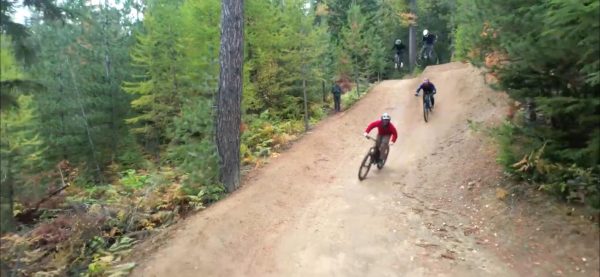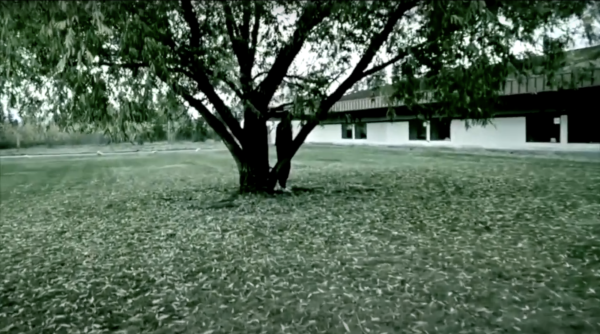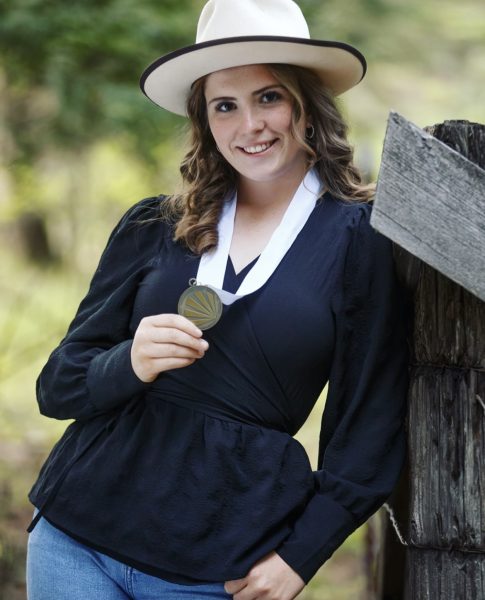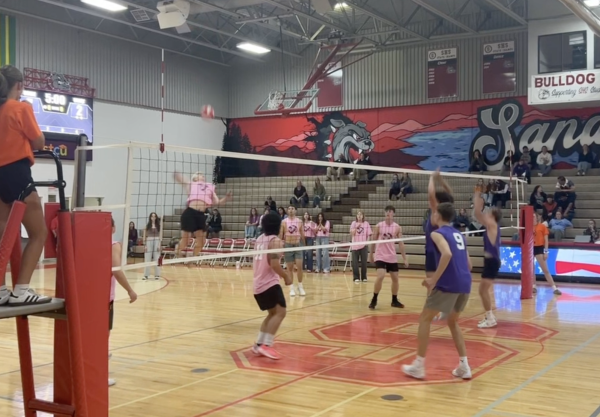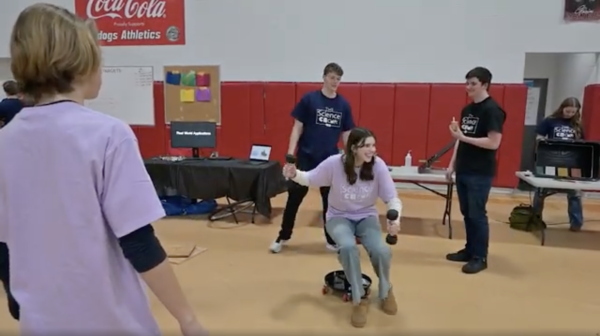Politically Correct
Students are encouraged to exercise their voice in politics– while teachers are not.
Election day is right around the corner. Eighteen-year-old students are preparing to exercise their right to vote for the first time and will take what they have learned in their government classes with them to the polls. Government classes are even more important this year for helping young adults become informed voters.
Historically, young adults have had the lowest turnout for voting of any other age group. This trend could be a result of young people not knowing enough about the government or the belief that they do not have the ability to influence it. Government teacher Kent Leiss foresees a change in this pattern with the upcoming election. He has observed that young people are more excited to take part in this election because there are things in the world they want to see changed.
When asked if it is critical for young adults to vote, government teacher Brian Smith said that, “It’s just as important to them as any other citizen and so [for] the 18 year olds [to] start exercising their right the second they can is important.” One purpose of a government class is to encourage young people to be involved in government so they can exercise their voting rights when they have the opportunity. “Most of my students seem pretty excited to be part of the process,” Smith said.
Government classes have focused on teaching their election unit more in depth since students will see the effects of it happen very soon. Students definitely show more interest in the topic when it is currently taking place versus learning about it hypothetically. In Smith’s words, “When you teach it and then you actually see it, it just helps the understanding that much more.”
Government teachers are tasked with a difficult job of keeping their political views out of their classrooms as much as possible. The school’s administration has encouraged their staff to stay neutral to respect the sensitivity of students and parents. Leiss said that out of his seven years of teaching at Sandpoint High School, sharing his opinion has not really become an issue until recently.
Teachers have to be able to articulate both sides of an argument so that students can decide for themselves which way they lean. “It’s really important for me to not teach them what to think, but teach them how to think,” Smith said. Most students say that their teachers do well at keeping their political views to themselves and maintaining a respectful environment in their classrooms.
However, since government teachers are supposed to teach unbiasedly, sometimes talking about each presidential candidate specifically is avoided. Senior Anya Keseloff thinks that it would benefit students to delve into what issues each candidate stands for. “I wish that I was taught more about Biden’s beliefs versus Trump’s beliefs so that I could kind of get a firm understanding,” she said. Talking about the candidates’ views more openly in classes could help students get a better sense of who they should vote for.
Seniors Share What Political Issues They Are Passionate About
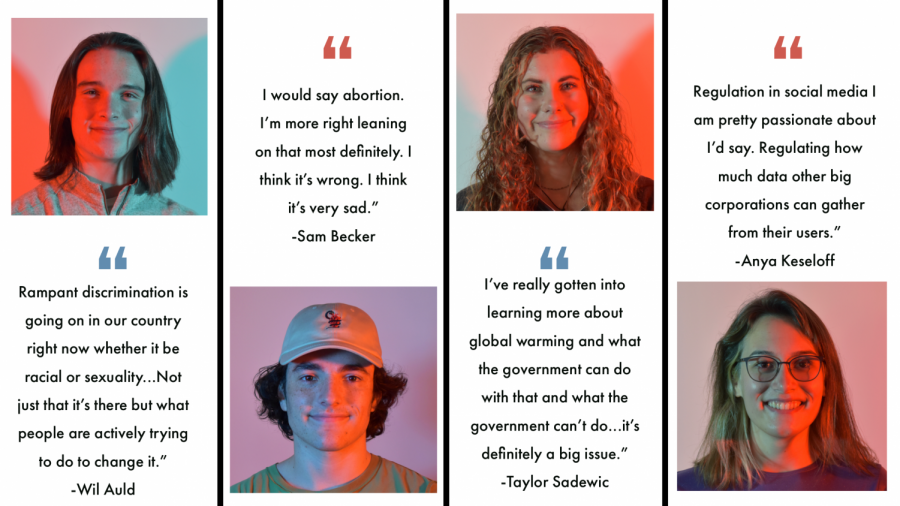
Senior Sam Becker feels that he has gained a better understanding of the ideas on each side of the political spectrum. “The most helpful thing I’ve learned is to always check multiple news sources,” Becker said. This is one of the main ideas that Liess tries to get his students to understand since every news site has its own agenda. “It is important to understand the views of the source that someone is getting their information from,” Liess said.
Youth are being influenced tremendously by the political content on their screens since “they’re getting bombarded with this stuff on social media.” Leiss said. Social media has been a huge contributing factor to the tension surrounding the election. ”Everybody who I talk to about it or anything that I read is very one-sided and it’s kind of hard to find where my opinion is.” Senior Taylor Sadewic said. This goes to show that the media can sway people’s opinions.
Becker believes that personal education goes a long way when preparing to vote. “Depending on what you’re going to vote for you should probably educate yourself and not let other people do it” Becker said, “that ‘s one of the problems in the United States right now is that people are just listening to everything they’re being told.”
Students have found that the intense controversy in the media has made them more hesitant to share their political beliefs. “It’s hard to talk to my peers about it because I feel like there are so many big topics going on in the world right now and sometimes my beliefs align with them and sometimes they don’t but whatever I say someone’s not going to agree with it,” Sadewic explained.
It seems that the majority of first time voters plan to go to the polls to get the full voting experience as opposed to mailing in a ballot. Liess’s classes previewed what the ballots look like so that students know what to expect when they go to the polls.
Voting is one of the best ways for one to influence change in the issues they care about. It is important now more than ever for the voices of young people to be heard. If you are eligible, exercise your right to vote and find out information on how to vote by visiting https://howto.vote/vote/en/id.html
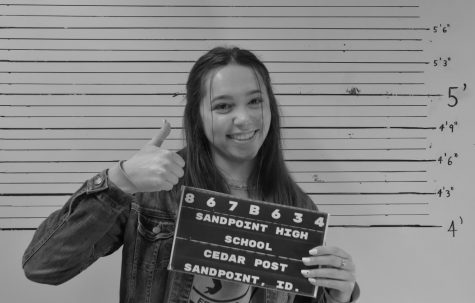
What weird sound do you love?
I love the sound of a crackling fire. It reminds me of summer campfires and cozy winter nights at the same time.
What...

